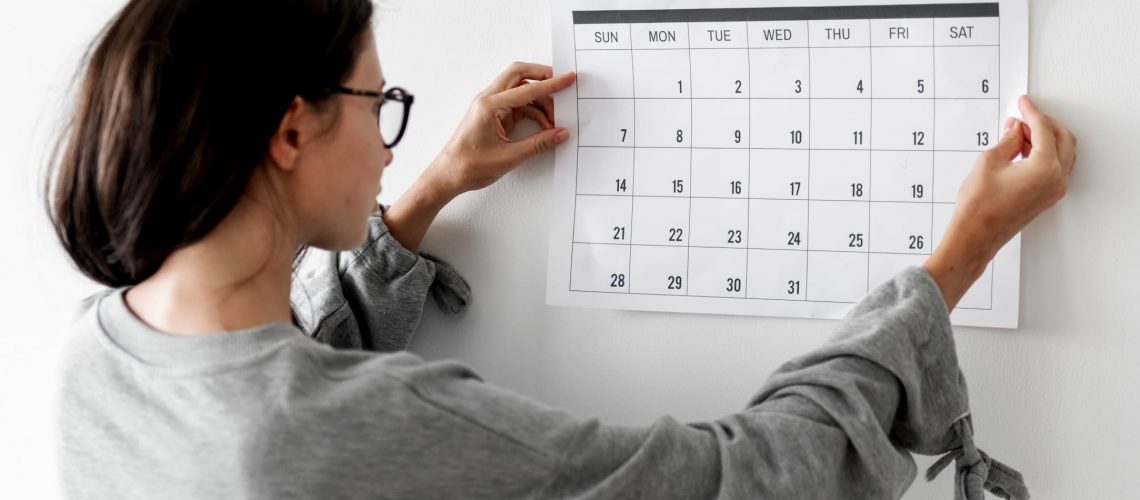Some people thrive on solid daily routines, while others cringe at the mere thought of following a predictable schedule. Whether you love or hate routines will mainly boil down to your personal preference and personality traits. However, maintaining some structure in your life, especially during stressful times, can have significant benefits to your mental and physical health.
What’s more, your aversion to a love of routine may also affect your relationships. For instance, your partner may love to have a nicely structured daily schedule and be incredibly frustrated by your unwillingness to organize your own day.
You may be able to work through your differences by attending a couples retreat or a relationship workshop. You can become aware of the psychological advantages of routine and learn how to bring healthy structure to your life and relationships.
Is It Good To Have A Routine?
Most people are creatures of habit, even though they may not be aware of it. In fact, having a stable routine can be incredibly helpful, especially if you are trying to build healthy habits that will bring you long-term benefits. This is particularly useful during times of stress, when maintaining some form of structure may help you feel more in control of your emotions.
The Psychological Benefits Of Routine

Maintaining a healthy routine in your day-to-day life can have an immensely beneficial effect on both your physical and mental health. Here are some of the most important psychological benefits of having a routine:
- Better stress management: adding structure to your daily life can help reduce anxiety and stress, and in turn improve your overall mental health.
- Improved sleep schedule: establishing a consistent time for going to bed and waking up can improve your quality of rest, as well as affect your emotional well-being, mental sharpness, and energy levels.
- Improved health: If you incorporate physical exercise and a healthy diet in your routine, you can greatly improve your overall physical health.
- Enhanced self-esteem: since a healthy routine can make you feel more in control, it may also make you feel better about yourself and your achievements in general.
Does Having A Routine Help With Anxiety?
Having a predictable, repetitive routine can indeed help reduce stress and anxiety. This is because maintaining some structure in your life can give you a sense of control and focus your attention on the present instead of the future. Still, by controlling your daily life, you’ll create a foundation for great benefits in the long-range future.
Why Is It So Hard To Keep A Routine?
While maintaining day-to-day structure may be harder for a person who prefers adventure and variety to a “boring” routine, the main reason why keeping a routine is so difficult lies primarily in the difficulty of breaking and creating habits. In fact, anyone can follow a routine with sufficient time, effort, and dedication. By motivating yourself to develop and reinforce healthy habits, you’ll find sticking to a routine much easier.
How Do You Not Get Stuck In A Routine?
Many people have an aversion to routine because they fear getting stuck in a rut. This may apply to your individual development, as well as your romantic relationships. You wake up at the same time with the same person, you get dressed, travel to work via the same route, work, come home, and go to sleep, and do it all over again the next day, until every day starts looking the same.
While having some structure in your day-to-day life is good for your wellbeing, that doesn’t mean that your life should be void of creativity and spontaneity. Here’s what you can do to shake things up:
- Take a step back: it’s easy to get lost in the business of everyday life, running from one thing to the next. Make sure to take a step back and assess the bigger picture: what do you really want to do in your life? Make sure to check your priorities and direction every once in a while to make sure your routine doesn’t lose its benefits.
- Don’t forget leisure time: Not every moment of your day has to be planned. Make sure to set some time aside in your day for relaxation and activities you like doing in your free time.
- Keep challenging yourself: The point of a routine is to help bring control and structure into your daily life, not to stop you from growing. Instead of staying in your comfort zone, keep exploring, trying new things, and finding new challenges to overcome.
How Do I Get Out Of A Routine In A Relationship?
Boredom can easily creep up in a relationship, especially when you’ve established a steady, unchanging daily routine. If you want to keep things fresh and avoid getting struck in a rut with your partner, try the following tips:
- Be aware of your daily routines
Turn off auto-pilot and try to recognize your habits. Once both you and your partner are aware of your routines, compare them and look for ways to shake things up.
- Discuss your needs with your partner
Communication is key to establishing healthy lasting relationships. Make sure to discuss your needs and daydreams with your partner, whether they have to do with physical intimacy, going on vacation, or cooking dinner.
- Switch up roles
Spicing up a daily routine can be as simple as swapping up chores and responsibilities with your partner. You’d be surprised how effective this can be, even if you do it just once or twice a week.
Shake Things Up At Our Romantic Relationship Building Skills Workshop

Whether you need help finding the motivation to leave your comfort zone or wish to create a steady routine to ease your anxiety, reaching out to a professional may be exactly what you need. At PIVOT, we love helping individuals engage in healthy living and heal past wounds that may be preventing them from growing. We offer a wide array of carefully-designed relationship retreats and workshops, as well as insightful and transformative individual coaching sessions. Not sure which option would fit you the best? Give us a call today!

